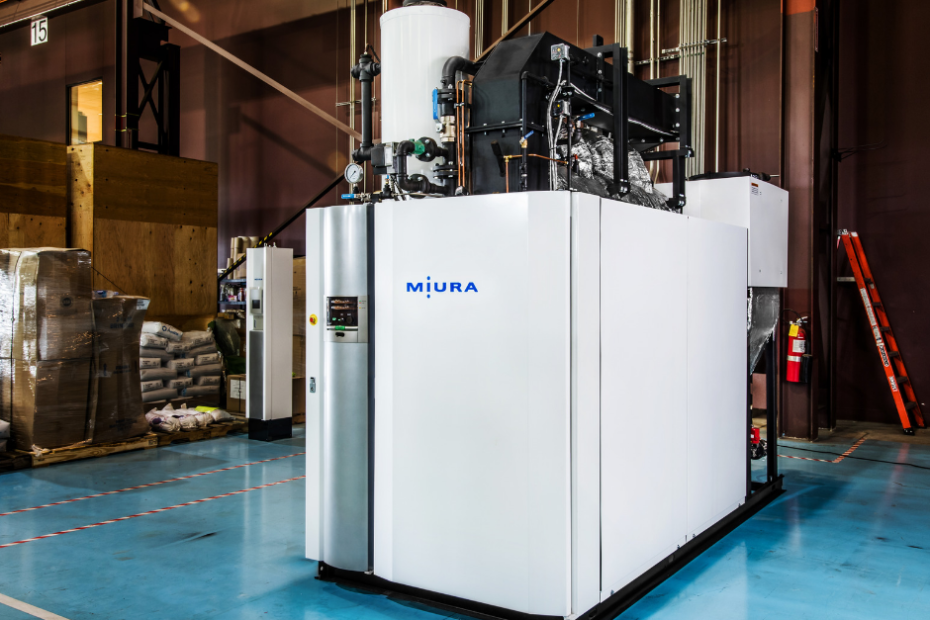One of the most user-friendly systems on board ships is the marine boiler. Though most mariners will agree on this, they also understand that it is a complex piece of machinery that necessitates the strictest safety precautions and operating procedures.
Accidents involving marine boilers on board ships have previously caused significant property damage and even claimed human lives. Mariners are aware of the dangers of high-temperature steam and thus, don’t take any chances when it comes to boiler operation and maintenance.
The primary causes of these accidents are improper operating procedures and failing to take adequate safety precautions when operating boilers. Any ship engineer’s primary concern is to operate all engine room machinery and systems as efficiently as possible while maintaining operational life and safety precautions. Kangrim Repairs for boilers are also non-negotiable and must take place as soon as boiler issues arise.
The main criterion for operating a boiler at a given load in marine boilers is the steam demand. In order to achieve the desired output, it is critical not to overstress the boiler. It is also necessary to make certain that the boiler is operated within all safety limits.
The following are some of the most important dos and don’ts that a marine engineer must keep in mind when operating a marine boiler in a safe and efficient manner:
Dos:
- Operating Procedure
When starting the boiler from a cold state, use the proper operating procedure. Make sure to pre- and post-purge after each firing, and keep the air vent open while firing and shutting down the boiler.
- Blow Down
A regular blow down of the gauge glass (once per watch) is required. To keep the chloride level at a minimum, the boiler should be blown down once per day. Scum blow down should be performed if floating impurities (oil, foaming, etc.) are suspected.
- Soot Blow
To keep the boiler tubes’ heat-exchanging ability going, blow soot into them.
- Smoke
On each watch, assess the combustion quality by inspecting the smoke from the boiler trunk coming out of the ship’s funnel.
- Lubricate
At regular intervals, all boiler mechanical parts and links must be lubricated and greased.
- Emergency Shut Down
Check that the emergency shut down of the boiler, which is located in the ECR, is operational. This will be tested in accordance with the safety procedures outlined in the company’s Safety Management System (SMS).
- Valves and Dampers
Check that all of the fuel line valves, steam valves, and safety valves are in good working order. Check the quick closing and safety valves for proper operation.
- Attend Leakage
Given their fluctuating steam pressure, steam systems are prone to leaks. Attend to all leaks as soon as possible in order to keep the boiler running efficiently at all times.
- Check Furnace
Keep an eye on the furnace for deterioration of the refractory and fuel dripping near the burner assembly. Any flaws must be corrected as soon as possible.
- FFA for Boiler
A boiler is a high-pressure machine with its own set of fire-fighting equipment. Examine the operation of the local fire extinguisher (foam type) and the high pressure jet fog system. Drills should be conducted on a regular basis to prepare the crew for fighting the boiler fire.
Don’ts:
- Untrained Operator
Never entrust a boiler operation to an assistant engineer or an untrained operator, especially when starting the boiler from a cold state.
- Blow Down
Excess blow down should never be performed because the feed water system will compensate by adding cold water to the boiler drum, resulting in a decrease in thermal efficiency and stresses in the boiler.
- Soot blow
Don’t use a soot blow system when the boiler is under high load.
- Unusual Observation
Don’t ignore any unusual observations in the boiler, whether it’s sound, smoke, flame quality, or other boiler parameters. Always resolve boiler-related issues as soon as possible.
- Overload
As a rule of thumb, don’t run the boiler at full capacity on a regular basis. Boilers can be overloaded due to load demand at times, but frequent overloading causes high stresses and tube failure.
- Feed Water
In no circumstances should sea water be used. If the hot well is filled with sea water as a result of heavy leakage in the condenser, shut down the plant and fix the problem.
- Leaking Tubes
When any water tube is leaking, do not operate the boiler. Repair the leak as soon as possible.
- Water Level
Do not rely on the water level indicator located in a remote location, such as the control room. To get a clear picture, look through a local gauge glass. Read The Science of Boiler Water Circulation.
- Furnace Door
Don’t leave the boiler furnace door open unless absolutely necessary. If the door is opened for burner cleaning or furnace inspection, close it when the equipment is not in use or when the job is completed.
- Periodic Maintenance
Don’t skip boiler and boiler auxiliary maintenance because it will reduce the boiler’s efficiency over time.
The do’s and don’ts mentioned above provide a general overview to ensure that boiler efficiency is maintained while safety is maintained.

